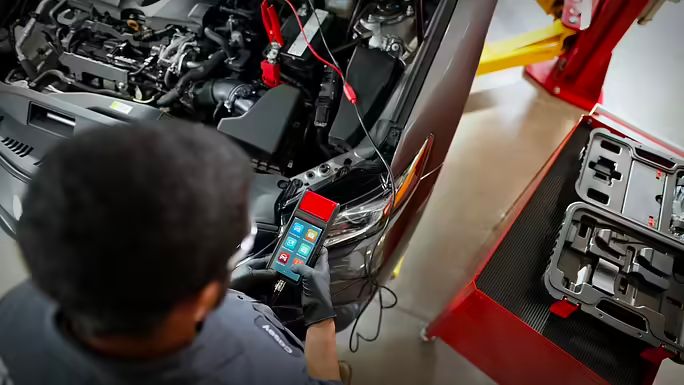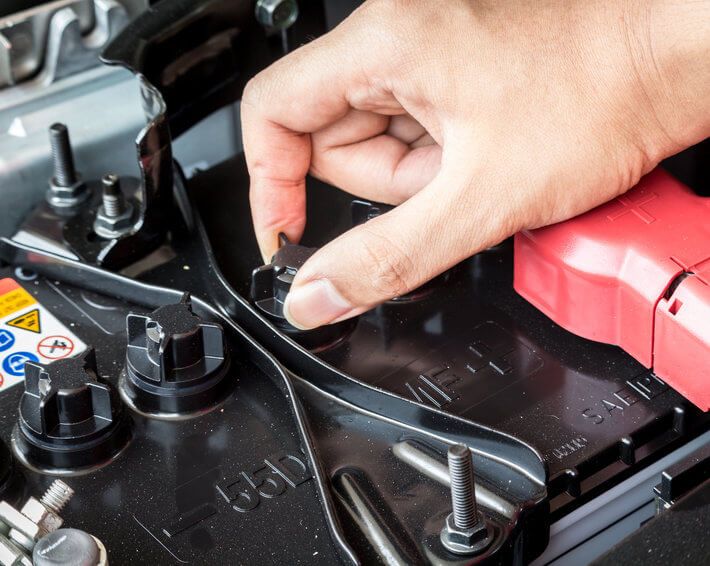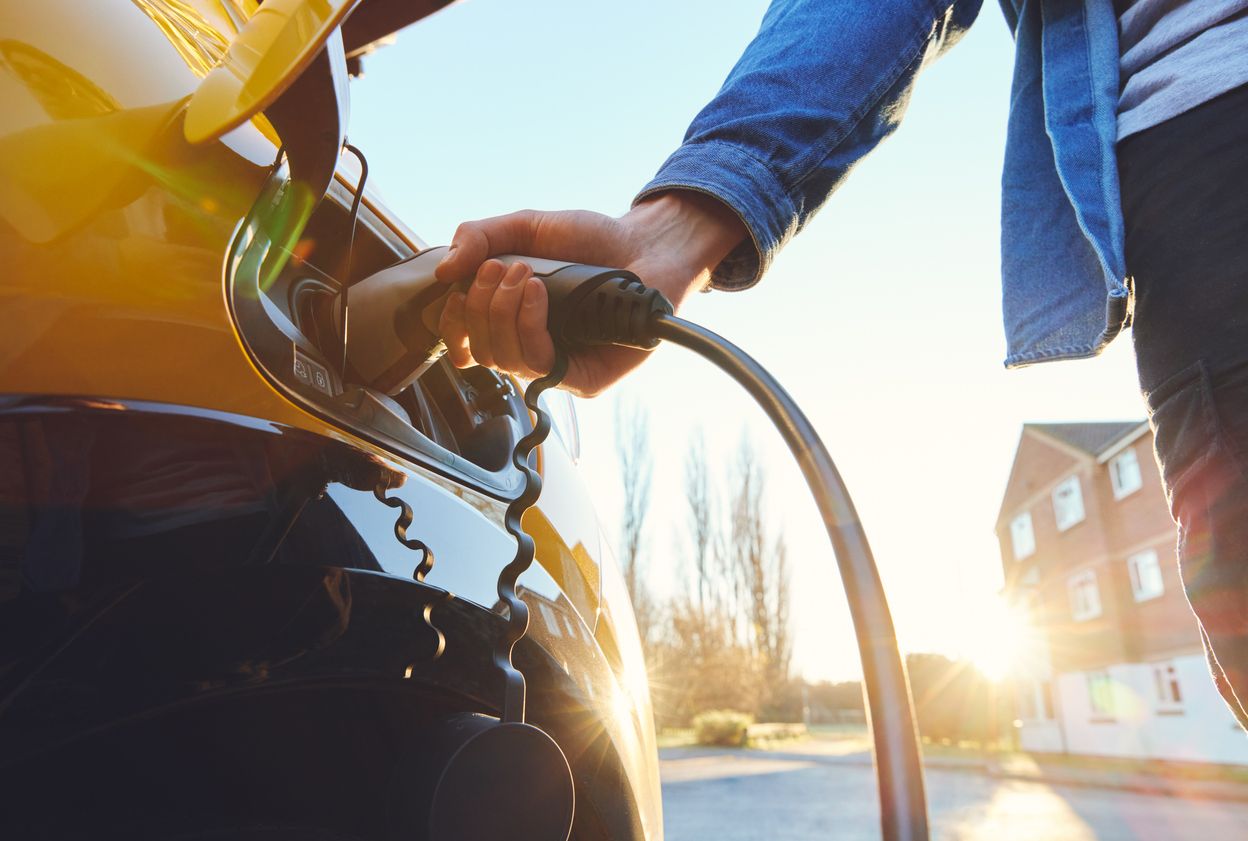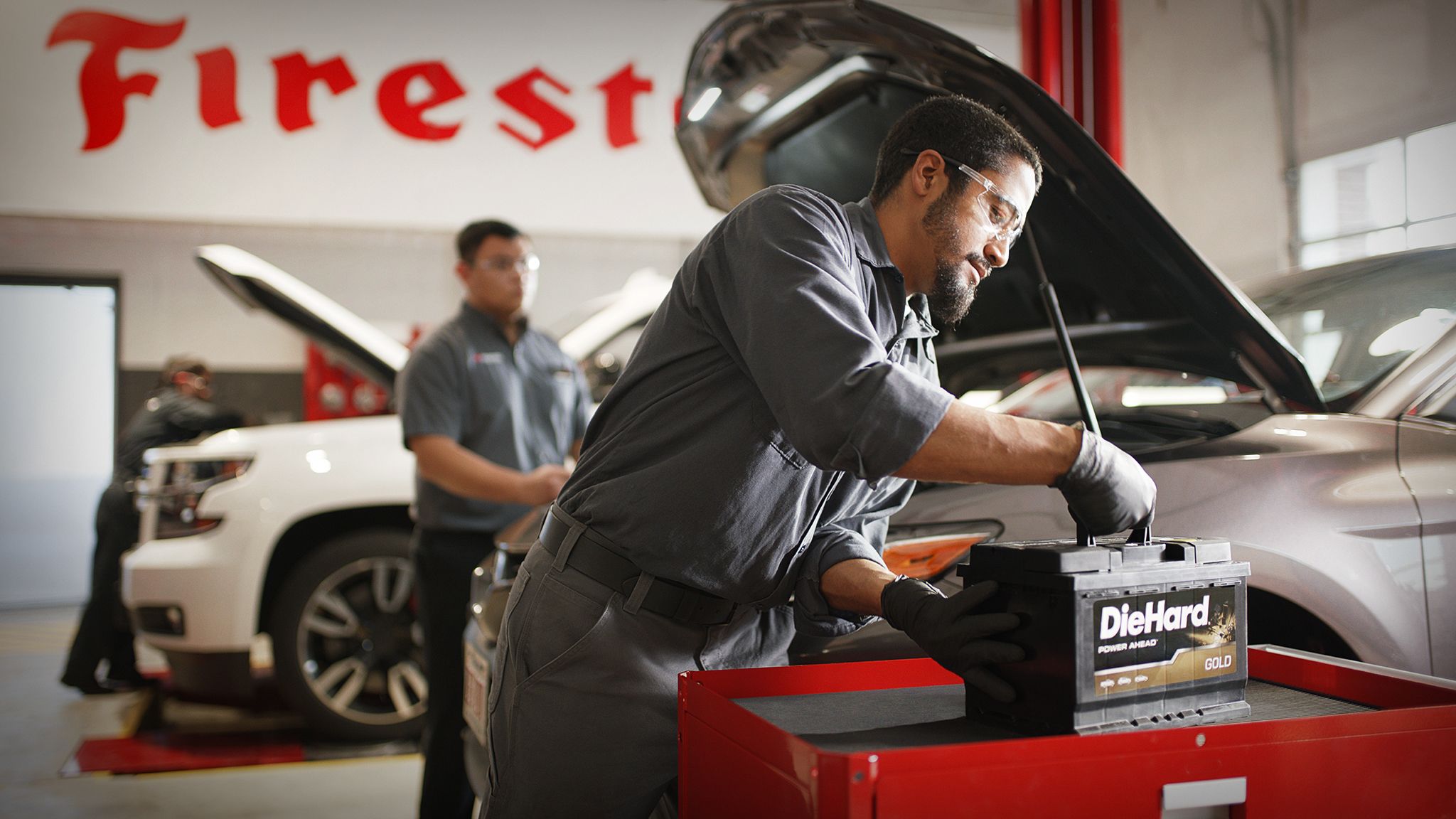If you’ve been having trouble starting your car or keeping it running, your battery or alternator could be the culprit. Don’t get left stranded. Read on to learn how batteries and alternators work together and how to tell if one of yours has failed.
The Difference Between Alternators and Batteries
Both your battery and your alternator deliver power, so why are both needed for your vehicle to operate properly? Though batteries and alternators have some overlapping duties, they deliver power at different stages of vehicle operation.
What’s the Purpose of a Car Battery?
You can think of your car’s battery like coffee — it delivers the energy needed to get your vehicle up and running. When you turn the key to start your engine, it’s your battery that sends power to your starter, ignition coil(s), and other vital components. Though batteries pack a serious electrical punch, they generally can’t keep a vehicle running for very long by themselves, which is where the alternator comes in.
What’s the Purpose of an Alternator?
Once your car is running, the alternator recharges your battery and takes over the job of supplying power to nearly all of your vehicle’s electrical components. It does this by turning rotational mechanical energy into electrical energy via a belt and pulley system. Inside the alternator is a set of magnets connected to the rotor which rotate inside the stator when the alternator’s pulley gets spun. This process ultimately generates DC electricity, effectively nullifying the problem of limited battery capacity.
How to Tell if the Alternator or Battery is Bad
Failing batteries and alternators can wreak havoc on your schedule (and your wallet), so it’s crucial to keep an eye out for signs either is going bad. At first glance, it may be difficult to differentiate between the signs of a bad car battery vs. alternator — but once you know what you’re looking for, troubleshooting can be a breeze.
Symptoms of a Bad Battery
Unfortunately, standard car batteries generally only last about three to five years. After that, they’re on borrowed time. There are many things that can drain your vehicle’s battery, but sitting without a charge for a long duration or experiencing extremely hot or cold climates can potentially reduce their lifetime. A dead battery can leave you stranded — if you’re able to start your car at all — so watch out for these signs of a failing battery:
- Clicking sound when trying to start your engine
- Slow cranking — may sound like “rurr, rurr, rurr,” when trying to start your vehicle
- Illuminated check engine or check battery light
- Swelling or bloating of the battery case
- Sulfur or rotten-egg smell — if your battery smells like this, it’s probably leaking — get it replaced ASAP!
For more in-depth information about car batteries, check out our guide, “Everything You Need To Know About Car Batteries.”
Quick Tip: If your battery has been tested and is working fine but your engine struggles to turn over, ensure that your wires and battery terminals are free of corrosion and gunk. If they’re not, scrubbing them with a wire brush or sandpaper may do the trick. If that doesn’t work, your starter could be the problem, so check for these five signs of a bad starter before replacing your battery!
Symptoms of a Bad Alternator
Fortunately, alternators typically last much longer than batteries, but exposure to water, excessive heat, excessive load, and faulty components can cause them to fail early. Like bad batteries, a failed alternator is likely to leave you stranded.
Once your alternator fails, all your vehicle’s electrical demands are placed on the battery, which can’t sustain the load for long. Once the battery is depleted, your vehicle will shut off, stranding you in potentially dangerous places like the side of a highway. To prevent this, watch out for these symptoms of a bad alternator:
- Illuminated battery dashboard light
- Low or abnormally high reading on the voltage gauge while driving (if equipped)
- Repeatedly dead batteries
- Dim or overly bright lights
- Underpowered or malfunctioning accessories (windows, radio, seat warmers, etc.)
- Whining, grinding, or growling noises under your hood
- The caustic smell of burning rubber
To find out more about why each of these symptoms occur, check out the “7 Signs of a Bad Alternator.”
How to Know if Your Battery or Alternator is Bad: Troubleshooting Tips
An effective method to determine whether it’s your battery or alternator that’s gone bad is to connect jumper cables from a running vehicle’s battery to yours. After a few moments, try starting your vehicle. Once it’s started, remove the jumper cables — if your engine stalls, your alternator has probably gone bad. If it continues to run, your battery is likely the culprit and you should get your battery and charging system tested immediately at your nearest Firestone Complete Auto Care.
Take Charge of Your Electrical System Today
If you experience any of these symptoms — alternator or battery — or you've reached the manufacturer-suggested maintenance limit for a service appointment, call on the professional technicians at your local Firestone Complete Auto Care. The best way to discern which component is causing an issue is to receive a professional inspection. We’ll even help you find a new battery or alternator if needed. Schedule your appointment today!



